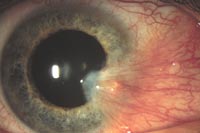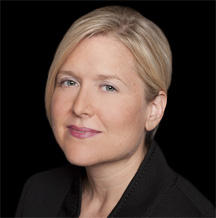July 6th, 2011 by Dr. Val Jones in Opinion
No Comments »
Beginning next year, if you or your loved one is discharged from a hospital, you’d better not return to it for 30 days. That’s because the hospital may be fined for your readmission (especially if you have had pneumonia, heart failure, or a heart attack – diagnoses singled out by CMS as preventable causes of readmission). In fact, if your readmission happens to tip the scales into the red zone (where the hospital falls below the 75th percentile in its hospital readmission rate compared to other hospitals), your arrival could literally cost them millions of dollars in penalties. Needless to say, hospitals are now scrambling to put programs in place to reduce hospital readmissions, all for the sake of “improved quality of care.” In summary:
“One in five Medicare inpatients is readmitted within 30 days. The Centers for Medicare and Medicaid Services (CMS) considers 40%-75% of these readmissions to be preventable. In October 2012, CMS will begin to track readmission and impose financial penalties on hospitals with higher–than–expected readmission rates for certain conditions. Other payers will certainly follow.”
So, will these programs to reduce hospital readmissions improve the quality of care you receive at your local hospital? Forgive me if I remain skeptical.
July 1st, 2011 by Dr. Val Jones in Audio, Health Tips
No Comments »

A Pterygium
Dermatologists have done a great job promoting sun safety. We all know that we should use sunscreen or sunblock to avoid burns, and to reapply it religiously when we plan to be outdoors for long periods of time. But how often do we think about protecting our eyes from the same UV rays?
A dear friend of mine has been on a long-term medicine that makes her skin especially sun-sensitive. She did not take sufficient precautions to protect her eyes from UV radiation (though she always wore sunscreen on her skin), and she developed a pterygium that looks just like the photograph above. Her condition reminded me of the importance of eye protection, and I thought I’d offer you 5 excellent reasons to start shielding your eyes from the sun. UV protection is critical for avoiding:
1. Photokeratitis. Photokeratitis is essentially a sunburn of the front layer (cornea) of your eyeball. If you’ve ever had a burning sensation in your eyes after a long day at the beach, or in the snow, you may have burned your eyes. Just as skin sunburns are painful and take a few days to calm down, eye pain can be very uncomfortable. But worse than the temporary discomfort is the increased long-term risks of pterygia, cataracts, and other eye conditions (see below).
2. Pterygia. Pterygia are overgrowths of corneal tissue that can grow across the iris and pupil. They can be cosmetically unsightly, and can block vision if they grow large. They are caused almost exclusively by UV damage, and are most common in people who live near the equator (because their exposure to UV radiation is highest). Surgery is the only known treatment for pterygia, though as many as 50% grow back, and surgical divets in the cornea can cause visual problems.
3. Cataracts. Cataracts are opacities of the eye lenses that lead to partial or total blindness. The exact mechanism by which they occur is unclear, though we know that sun exposure contributes to their development. Cataracts are the number one cause of blindness in the world.
4. Skin Cancers. Basal cell carcinoma (BCC) is a type of skin cancer that primarily develops on skin that has been sunburned, especially in childhood. Melanoma is a deadly form of skin cancer that is much rarer than BCC, but also most commonly develops on skin that has been burned. Squamous cell carcinoma (SCC) is the least invasive type of skin cancer, and usually develops on skin that has had the largest total amount of sun exposure over a lifetime. People who don’t protect the thin eye skin and lids from UV radiation (beginning in childhood) are more likely to develop cancer around the eyes
5. Macular Degeneration. Exposure to the sun’s UV rays can cause damage to the deep structures of the eye, including the retina. Light focused on the macula (the most important part of the retina for vision) can cause damage in the area over time. Macular degeneration results in visual damage and even blindness.
Ok, so I hope I’ve convinced you that UV protection is critically important for your eyes… How can you protect yourself? There are 4 primary strategies:
1. Wear UV protective sunglasses. When buying sunglasses, check out their product labels and avoid glasses that are purely cosmetic – opt for those that block 99-100% of UV A and B rays. Larger glasses and wrap-arounds offer the most coverage. Remember that kids need sunglasses too!
2. Wear a wide-brimmed hat. Although a hat doesn’t always protect you from glare and light reflection from other surfaces, it can reduce the total amount of radiation that reaches your eyes and skin.
3. Wear UV-protective contact lenses. Most people don’t realize that some contact lenses are manufactured with a UV protective layer already built in. Although they are not large enough to protect the entire eye surface (or the skin around the eye) they offer an added layer of protection against harmful UV rays. However, not all contact lenses offer UV protection, and of those that do, not all provide similar absorption levels. An eye care professional can prescribe Class 1 UV-blocking contact lenses, which provide the greatest level of UV protection and which have a Seal of Acceptance for UV Absorbing Contact Lenses from both the American Optometric Association and the World Council of Optometry’s Commissions on Ophthalmic Standards. These lenses block more than 90 percent of UVA rays and 99 percent of UVB rays.
4. Protect your eyes all day. UV radiation for the eyes is actually worse when the sun is lower in the sky. Researchers at the Kanazawa Medical University in Japan found that during early morning and late afternoon, UV exposure to the eyes was about double that of the hours around noon during Spring, Summer and Fall.
For more information about protecting your eyes from the sun, you may enjoy listening to my recent interview with Dr. Stephen Cohen.* He is an optometrist who lives in Arizona – and is therefore well acquainted with UV radiation! Scroll down to the bottom of the page after clicking on the link and you’ll see the podcast.
***
Note that I was paid by Johnson & Johnson Vision Care, Inc. to host the radio show with Dr. Cohen.
June 30th, 2011 by Dr. Val Jones in Announcements
10 Comments »

It is with great pleasure that I welcome our CDC colleagues to the Better Health blog team. Going forward, Better Health will feature content from the CDC blogs on a weekly basis, and our collaborative efforts will be highlighted on the CDC blog pages as appropriate.
Better Health and the CDC share a common mission: to reach as many Americans as possible with scientifically accurate, trustworthy, and helpful medical information. As social media platforms (such as blogs, Twitter, and Facebook) become a gathering place for people seeking health information – it is important for experts to be able to provide content through these channels. The CDC’s relationship with Better Health is an excellent example of a public-private partnership that can magnify reach and relevance.
By becoming a content partner with Better Health, the CDC joins a prestigious international team of physicians, nurses, health experts and patient advocates, including notable organizations such as the American College of Physicians blogs, Harvard Health Publications, Diario Medico, Healthline, the Center For Advancing Health, and the Columbia University Department of Surgery. Read more »
June 28th, 2011 by Dr. Val Jones in Opinion
2 Comments »
 I’ve often heard physicians say that “the history is 90% of the diagnosis.” In other words, they can usually determine the underlying cause of a patient’s problem just by listening to their account of how it evolved. The physical exam is merely to confirm the diagnosis, and is often cursory, limited, or ignored.
I’ve often heard physicians say that “the history is 90% of the diagnosis.” In other words, they can usually determine the underlying cause of a patient’s problem just by listening to their account of how it evolved. The physical exam is merely to confirm the diagnosis, and is often cursory, limited, or ignored.
I believe that the physical exam is far more important than it seems – and I learned this during my recent oral medical specialty board examination. Although I have been sworn to secrecy regarding the content of the test questions, I will share an epiphany that I had during the exam.
The examiners’ job is to describe a patient and then ask the examinee what else she’d like to know and what she’d do next. With each description, I found myself struggling to visualize the patient – wishing I could see their face and hear their tone of their voice as they described their condition. I hadn’t realized that so much of my clinical judgement was based on laying eyes on a patient – I needed to see if they were in pain, if they were straining to breathe, if their skin was pasty or pale, if they were disconnected and potentially drug-seeking, if they were fidgety, if they were articulate, forgetful, or well-groomed. All of these subtle cues were gone. I was left staring at the examiner – who himself couldn’t describe the patient more fully because he was to stick to the script, reading verbatim from a prepared list of signs and symptoms. Read more »
June 13th, 2011 by Dr. Val Jones in Announcements, Health Tips
No Comments »
 You probably see your primary care physician once a year, and your dentist twice a year. But how often do you see your eye doctor? Vision is the most valued of the 5 senses, and yet Americans don’t seem to be making regular eye exams a priority. A recent CDC survey suggests that as many as 34.6% of adults over the age of 40 (with moderate to severe visual impairment) believe that they don’t need regular eye exams. About 39.8% of the respondents said that they didn’t get regular exams because they were too costly, or because their health insurance didn’t cover the expense.
You probably see your primary care physician once a year, and your dentist twice a year. But how often do you see your eye doctor? Vision is the most valued of the 5 senses, and yet Americans don’t seem to be making regular eye exams a priority. A recent CDC survey suggests that as many as 34.6% of adults over the age of 40 (with moderate to severe visual impairment) believe that they don’t need regular eye exams. About 39.8% of the respondents said that they didn’t get regular exams because they were too costly, or because their health insurance didn’t cover the expense.
Although cost may play a role in peoples’ thinking, a comprehensive eye exam costs as little as $45-50 at retail outlets. I suspect that the real reason why people don’t get regular eye exams is because they incorrectly believe that if their vision is stable, their eyes are healthy.
A comprehensive eye exam is a type of medical check up – it is not just a vision assessment. Eye care professionals can diagnose everything from glaucoma and cataracts to high cholesterol, diabetes, high blood pressure, and even neurologic conditions such as brain tumors and multiple sclerosis. The eyes are more than a “window to the soul” but a window to general physical health. And the good news is that exams are relatively inexpensive and painless – so please consider making them part of your yearly health maintenance routine.
And to my primary care friends – don’t forget to encourage your patients to get annual eye exams. As the CDC notes:
Recommendations from primary-care providers can influence patients to receive eye-care services; persons who had visual screening during routine physical examinations had better eye health because of reminders to visit eye specialists. Public health interventions aimed at heightening awareness among both adults aged ≥65 years and health-care providers might increase utilization rates among persons with age-related eye diseases or chronic diseases that affect vision such as diabetes.
I myself have had an unexpected diagnosis during an eye exam, and feel passionate about the importance of preventive screening. In fact, I’ll be the upcoming host of a new eye health education initiative – a radio show called, “Healthy Vision with Dr. Val Jones” supported by ACUVUE brand contact lenses. The first show will be released here today, and it’s also available at Blog Talk Radio.
References:
Reasons for Not Seeking Eye Care Among Adults Aged ≥40 Years with Moderate-to-Severe Visual Impairment — 21 States, 2006–2009. Morbidity & Mortality Weekly Report, May 20, 2011. 60(19);610-613
Alexander RL Jr., Miller NA, Cotch MF, Janiszewski R. Factors that influence the receipt of eye care. Am J Health Behav 2008;32:547–56
Strahlman E, Ford D, Whelton P, Sommer A. Vision screening in a primary care setting. A missed opportunity? Arch Intern Med 1990;150:2159–64
Disclosure: Dr. Val Jones is a paid consultant for VISTAKON®, Division of Johnson & Johnson Vision Care, Inc.



 I’ve often heard physicians say that “the history is 90% of the diagnosis.” In other words, they can usually determine the underlying cause of a patient’s problem just by listening to their account of how it evolved. The physical exam is merely to confirm the diagnosis, and is often cursory, limited, or ignored.
I’ve often heard physicians say that “the history is 90% of the diagnosis.” In other words, they can usually determine the underlying cause of a patient’s problem just by listening to their account of how it evolved. The physical exam is merely to confirm the diagnosis, and is often cursory, limited, or ignored. You probably see your primary care physician once a year, and your dentist twice a year. But how often do you see your eye doctor? Vision is the most valued of the 5 senses, and yet Americans don’t seem to be making regular eye exams a priority. A
You probably see your primary care physician once a year, and your dentist twice a year. But how often do you see your eye doctor? Vision is the most valued of the 5 senses, and yet Americans don’t seem to be making regular eye exams a priority. A 







